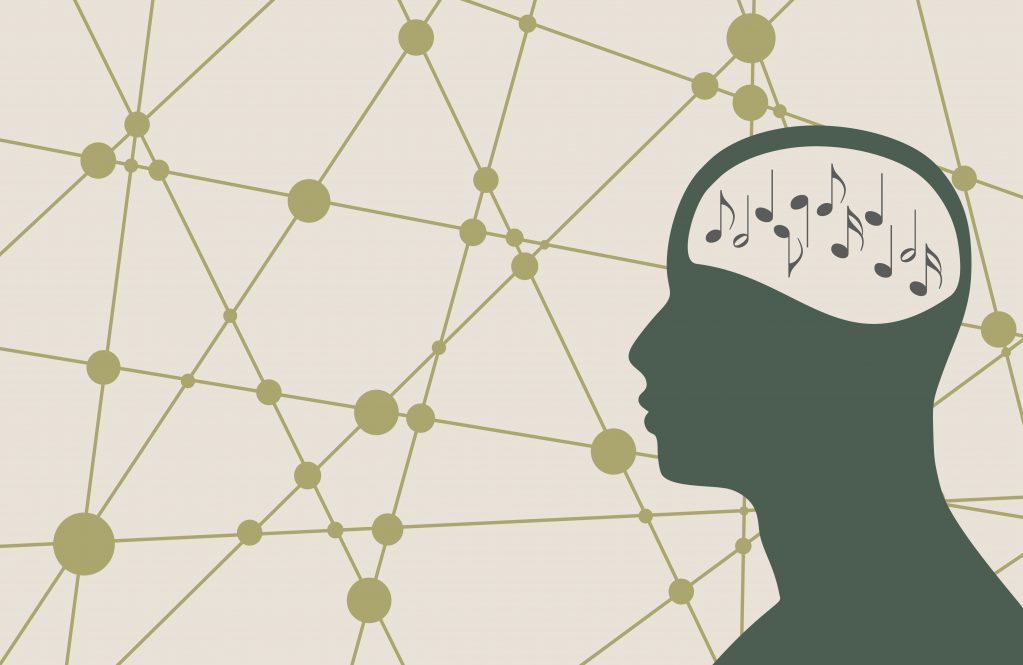Two UConn students were selected to join the Clinton Global Initiative (CGI) to develop their proposal to create a mobile device application that will use music therapy to help college students manage stress.
Srikari Tummla ’22 (CLAS) and Mukund Desibhatla ’21 (CLAS) presented their proposal in March during a virtual conference at the Clinton Foundation’s annual “Commitment to Action” event.
Both Tummla and Desibhatla grew up immersed in Indian traditional arts, learning to use health coping mechanisms in the face of stress and anxiety. Their project will create an app using Indian Carnatic and Hindustani music to evoke specific emotions with the goal of managing stress and promoting overall wellness with daily meditative practice. They will research the cognitive and behavioral impacts of Indian classical ragas, develop a music-based algorithm and application, and perform beta trials of software with university students.
Tummla is majoring in pathobiology and computer science with a minor in molecular and cell biology. Desibhatla completed his degrees in physiology & neurobiology and Spanish, with a minor in European Studies, while serving as a Peer Research Ambassador in the Office of Undergraduate Research.
Their faculty advisors for the project are Sanguthevar Rajasekaran, Board of Trustees Distinguished Professor of Computer Science and Engineering, UTC Chair of CSE and head of the department, and Jesús A. Ramos-Kittrell, assistant professor in residence of music history and ethnomusicology.
“There are not too many projects bridging the arts and humanities with the harder sciences so that you’re going to have a true conversation between fields,” Ramos-Kittrell says. “That’s something very unique to this project. Mukund’s and Srikari’s accomplishment represents UConn at the highest level. The Clinton Global Initiative encourages projects with a commitment to action and not just wishful thinking.”
Desibhatla and Tummla say the idea for developing an app based on ragas surfaced after researching music therapy and finding most of the field focuses on using traditional Western music. They aim to have the app become a universal resource.
“I’ve always been very interested in the link between psychology and wellness, especially in the realm of wellness therapies that are not well-known,” Tummla says. “We were talking about our own personal experiences with playing Carnatic music and listening to it. We were able to understand that there are large gaps in the area of research, specifically the lack of scope in terms of what music is included in music therapy.”
Desibhatla recalls growing up in a household with a passion for Indian classical arts.
“At the age of five, my Mom put me in Carnatic music classes. After dinner, we would all go to our music room, which was also our place of worship,” he says. “We would all take out a different instrument and just jam out. It was therapeutic in nature and this is sort of how we grew up.”
In their proposal to the Clinton Global Initiative, Desibhatla and Tummla described their motivation for developing their project.
“Anxiety, depression, and stress-induced symptoms are common yet debilitating mental health stressors faced by collegiate populations nationally,” they write. “The limited therapy options have pointed caregivers in the direction of efficient therapy that can be practiced in the comfort of one’s home, including meditation, journaling and yoga…Our plan is to create a resource that would provide individual music therapy to students based on their specific mental health or wellness issues.”
Two of the key aspects of developing the app are utilizing quiz questions to create a personalized playlist of music to address emotional needs and the complexity of Carnatic music, based on a fundamental set of 72 ragas that can expand to thousands of more complex musical themes. Combining these approaches forms the basis of a student-based approach known in education as mission-based learning. Rajasekaran is an expert in the area of algorithms and complexity.
“Using music as therapy is a novel idea and it was quiet interesting to me,” Rajasekaran says. “I cannot claim to be expert in Carnatic music but I have been a listener. They mention in their proposal machine learning. That’s where I hope I’ll be able to provide some guidance.”
With few precedents to study, Desibhatla and Tummla say they will focus on the initial research and development phase, data security and creating a “comprehensive and fruitful” survey for students to complete.



